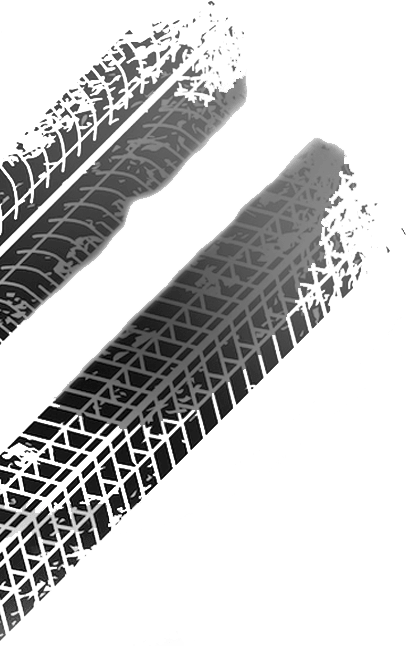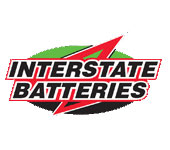
AUTONET TV
Archive for July 2025Oil Times are a-Changin' (Oil Change Synthetic)Posted July 27, 2025 4:04 AMWhen it comes to oil changes, things are really changing. Most newer vehicles require synthetic oil, and while it costs more than conventional oil, it doesn't need to be changed as often. When conventional oil was the only game in town, you changed your oil every 3,000 miles/5,000 km. But as technology in newer vehicles has rapidly changed, so has oil technology. Synthetics have been around since the seventies. Even though they start with a conventional oil base, they are engineered in a chemical processing plant with properties that allow them to keep your engine lubricated at very high temperatures. They are more uniform and consistent. Synthetic oil doesn't break down as easily, so it lasts longer than conventional oil. And synthetic oil can flow more easily, even in extremely low temperatures. As you can see, it has performance advantages at both temperature extremes. Generally, in recent years automakers have been shipping most of their vehicles with either synthetic oil or a synthetic blend. Blends are cheaper and have many of the advantages of synthetics. Another reason synthetic oil is being used in many newer vehicles is its ability to flow more easily improves efficiency. It's important to follow your vehicle manufacturer's recommendations when you have your oil changed, so our service adviser can see what options you have for your vehicle. Many newer vehicles come with specific recommendations for synthetic oil. If you live in an area with wide temperature extremes or do a lot of stop-and-go driving, synthetic oil can offer advantages. Older vehicles can do fine with conventional oil, but it will have to be changed more than synthetic oil. Also, if you have an older vehicle with more than 75,000 miles/120,000 km on it, it can be more prone to leak and burn oil. Some synthetic oils are designed to protect those high-mileage vehicles better than conventional oil, and yours may benefit. See what your service adviser thinks. Joe D'Auria's Auto 'Tis the Season (Tires)Posted July 20, 2025 4:22 AMWe all know about winter tires. But did you know there is such a thing as summer tires? Most people have all-season tires on their vehicles. They work pretty well in a variety of weather conditions. But if you want better handling and performance, you might consider switching to summer tires. Here are a few things you should know about them. Summer tires are good for high-performance vehicles like sports cars and luxury SUVs, but they don't have to be limited to those. They have a different tread pattern than all-season tires, with generally shallower grooves and more rubber that contacts the road. The rubber is made of a stickier compound good for taking corners at higher speeds. Plus it is engineered so it stays firmer the hotter the temperature gets. Here's a bonus. That design also works well in warm, wet weather. It makes sense, since more the more rubber that's touching the concrete or asphalt when it's slippery out, the better the traction. There are some things to be aware of with summer tires. They often have asymmetrical or unidirectional tread patterns. That sometimes limits the way these tires can be rotated on a vehicle. Another thing to remember is it is NOT a good idea to use summer tires in any wintery conditions. They lose traction as the temperature heads toward the freezing range and below since that rubber that's designed to stay firm at warm temperatures gets hard as a rock when they freeze. But in warmer weather, summer tires can increase your braking and cornering capabilities. Plus you'll notice more grip at faster speeds and higher temperatures than all-season tires. So think about discussing summer tires with your service advisor to see if they'd be a good fit for the type of driving you do. He or she will offer you some choices that are designed to meet your vehicle's specs. Joe D'Auria's Auto Power Steering Service in CHERRY HILLPosted July 13, 2025 4:31 AM
Joe D'Auria's Auto Wired! (Battery Cable Service)Posted July 6, 2025 3:59 AMColder weather brings out the worst in a vehicle's battery. On a very cold day, you may have experienced that your engine cranks slowly when starting. But while it may be the battery itself, it may also be the parts that transfer the power to other the other electrical components, the battery cables. After all, you have to have some way to get the current out of the battery and out to where it needs to go. Battery cables have a couple of enemies: corrosion and age. You may have looked under the hood and noticed a light-colored powder or crust around the terminals. That's what happens when acids corrode the ends of the battery terminals. Corrosion inhibits the connection and may reduce the amount of power getting to the electrical accessories to the point where they are not working correctly, if at all. Here are some symptoms of problems with your battery cables. You might notice a clicking sound when you turn the key, some of your vehicle's electrical parts (like the sound system or the horn) don't work or, in some cases, the vehicle won't start at all. When you take your vehicle to a repair facility, the technician will use instruments to check voltages to see how much current is getting to what location. That includes a starter draw test during which the battery's voltage is checked when the starter is cranked. The technician will also visually inspect the cables and the charging system. To make sure the alternator is putting out the right voltage, the technician will measure that as well. If the problem is found to be the battery cable assembly, the entire set may have to be replaced. Sometimes they can be repaired. During the colder months, it's vital that your vehicle has the proper power going to its electrical components. Having a vehicle that won't start or run smoothly is not something you want to battle with when you're already up against challenging weather. Keep your electrons flowing… and your vehicle moving.
| ||
SearchArchiveApril 2018 (18)May 2018 (4) June 2018 (4) July 2018 (5) August 2018 (4) September 2018 (5) October 2018 (4) November 2018 (4) December 2018 (5) January 2019 (5) February 2019 (4) March 2019 (5) April 2019 (4) May 2019 (4) June 2019 (5) July 2019 (4) August 2019 (4) September 2019 (5) October 2019 (4) November 2019 (4) December 2019 (5) January 2020 (4) February 2020 (4) March 2020 (5) April 2020 (4) May 2020 (5) June 2020 (4) July 2020 (4) August 2020 (5) September 2020 (4) October 2020 (4) November 2020 (5) December 2020 (4) January 2021 (6) February 2021 (4) March 2021 (4) April 2021 (4) May 2021 (5) June 2021 (4) July 2021 (4) August 2021 (5) September 2021 (4) October 2021 (5) November 2021 (4) December 2021 (4) January 2022 (6) February 2022 (4) March 2022 (4) April 2022 (4) May 2022 (5) June 2022 (4) July 2022 (5) August 2022 (4) September 2022 (4) October 2022 (5) November 2022 (4) December 2022 (4) January 2023 (5) February 2023 (4) March 2023 (4) April 2023 (5) May 2023 (4) June 2023 (4) July 2023 (5) August 2023 (4) September 2023 (4) October 2023 (5) November 2023 (4) December 2023 (5) January 2024 (5) February 2024 (4) March 2024 (5) April 2024 (4) May 2024 (4) June 2024 (5) July 2024 (4) August 2024 (4) September 2024 (5) October 2024 (4) November 2024 (4) December 2024 (5) January 2025 (4) February 2025 (4) March 2025 (5) April 2025 (4) May 2025 (4) June 2025 (5) July 2025 (4) | CategoriesMaintenance (6)Fluids (4)Fuel Economy (5)Tires and Wheels (4)Auto Safety (4)Check Engine Light (2)Windshield Wipers (3)Air Conditioning (8)Brakes (9)Battery (7)Headlamps (3)What Customers Should Know (54)Oil Change (7)Alternator (5)Drive Train (2)Steering (8)Transmission (3)Service Intervals (2)Service Standards (2)Cooling System (6)Water Pump (2)Winter Prep (1)Battery Replacement (1)Alignment (5)Safety (2)Exhaust (6)Automotive News (1)Tires (7)Fuel System (3)Fuel Saving Tip: Slow Down (2)Safe Driving (1)Trip Inspection (1)PCV Valve (1)Suspension (1)Brake Service (2)Inspection (4)Tire Rotation and Balancing (3)Wheel Bearings (1)Timing Belt (3)Shocks & Struts (1)Cabin Air Filter (1)Keys to a long lasting vehicle (1)Engine Air Filter (2)Fuel Pump (1)Dashboard (1)Winter Tires (1) | |

OUR REVIEWS

 WOW!
WOW! Cherry Hill, NJ
Ra Yo, 06/29/2025(Translated by Google) I highly recommend. (Original) Je recommande fortement.

Get free Coupons
Take advantage of these great offers!










